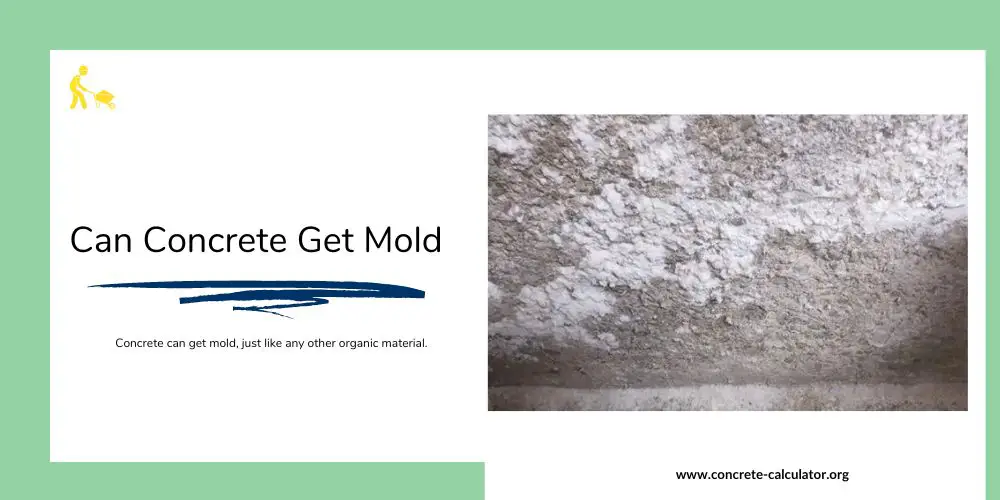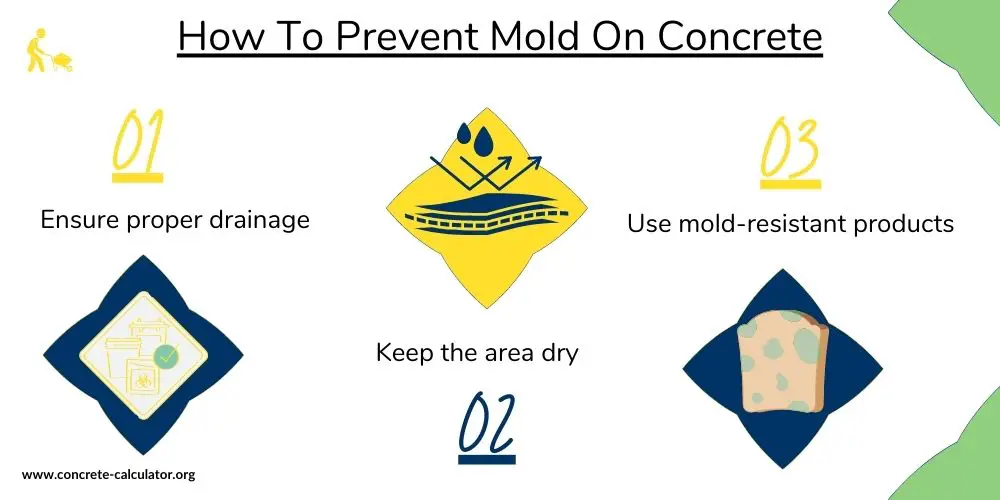Concrete is an incredibly durable and strong material, often used in construction and landscaping projects. However, it’s not impervious to mold growth, which can be unsightly and even harmful to health. But can concrete get mold, and what can you do to prevent and clean mold on concrete surfaces?
In this blog post, we’ll answer all your questions about mold on concrete, and give you some handy tips for preventing and eliminating the problem.

Can Concrete Get Mold?
Yes, concrete can get mold, just like any other organic material. Mold is a type of fungi that grows in damp and humid environments, where there’s plenty of moisture and organic matter to feed on. Concrete is porous, which means that water can seep into it and create the perfect conditions for mold growth.
Mold can appear on concrete surfaces both indoors and outdoors, and can be caused by a variety of factors, such as high humidity, water leaks, poor ventilation, and lack of sunlight. Some of the most common types of mold found on concrete are Aspergillus, Penicillium, and Cladosporium.
Also Check: Cement Slab Calculator
How To Prevent Mold on Concrete?
Prevention is key when it comes to mold growth on concrete. Here are some tips to keep your concrete surfaces mold-free:
Ensure Proper Drainage
Make sure that water drains away from your concrete surfaces, and that there are no puddles or standing water. Check your gutters, downspouts, and drains regularly, and clear out any debris or blockages.
Keep The Area Dry
If you notice any dampness or moisture on your concrete surfaces, dry it out as soon as possible. Use a fan or dehumidifier to improve ventilation, or install a waterproofing membrane to prevent water from penetrating the concrete.
Use Mold-Resistant Products
When painting or sealing your concrete surfaces, use mold-resistant products that contain anti-fungal agents. These can help to prevent mold growth, as well as protect your surfaces from other types of damage.

How To Clean Mold From Concrete?
If you do notice mold on your concrete surfaces, it’s important to remove it as soon as possible, to prevent it from spreading and causing further damage. Here are some steps to follow when cleaning mold from concrete:
Wear Protective Gear
Mold can be harmful to health, so make sure you wear gloves, goggles, and a mask when cleaning it.
Dry Brush And Vacuum The Area
Before cleaning the mold, remove any loose debris and spores with a dry brush and vacuum cleaner. This will help to prevent the mold from spreading.
Use a Mold-Killing Solution
There are many commercial mold-killing solutions available, or you can make your own using a mixture of water and white vinegar or hydrogen peroxide. Apply the solution to the affected area with a brush or spray bottle, and let it sit for 10-15 minutes.
Rinse And Dry
Once the mold is dead, rinse the area thoroughly with water, and dry it out completely with a fan or dehumidifier. Make sure the area is well-ventilated, and avoid painting or sealing the area until it’s completely dry.
Also Read: Does Concrete Expand
FAQ’s
What is the best way to prevent mold from growing on concrete?
The best way to prevent mold growth on concrete is to keep the area dry, clean, and well-ventilated. Make sure any leaks or water sources are addressed, and use a fan or dehumidifier to improve air circulation in damp areas.
How can I remove mold from concrete safely?
When removing mold from concrete, make sure you wear protective gear such as gloves, goggles, and a mask. Start by dry brushing and vacuuming the area to remove any loose debris and spores. Then apply a mold-killing solution (commercial or homemade) and let it sit for 10-15 minutes. Finally, rinse the area thoroughly with water and dry it out completely.
Can mold on concrete cause health problems?
Yes, mold can cause a range of health issues. Inhaling airborne spores can lead to respiratory symptoms such as headaches, coughing, and sore throats. If you have any concerns about your health, you should consult with your doctor.
People Also Liked:

